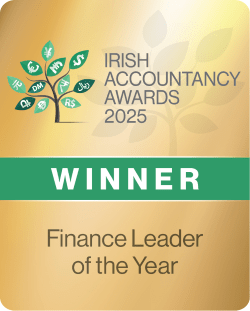Steering a digital marketing agency in Ireland demands a blend of creativity, expertise, and a solid grasp of revenue generation. If you’re leading a marketing agency and wondering, “How do marketing agencies make money in Ireland?” Here are 10 strategies to help you become more profitable.

1. Diversify your service offerings
Clients are on the hunt for one-stop solutions. But how do marketing agencies make money with a diverse range of services? Consider expanding your service offerings to cater to a broader client base. For instance, if your forte has been SEO, consider branching out into areas like content marketing, video production, or even podcasting.
Example: After optimising a client’s website, offer them a package that includes blog posts tailored to their industry, video content for their social media, and perhaps even a podcast or webinar setup. This holistic approach not only enhances client retention but also increases the average revenue per client. By offering bundled services, you can provide discounts that appeal to clients while maintaining a healthy profit margin.
2. The power of retainers
Consistency is key in the agency world, posting a few blog entries and hoping for the best won’t cut it. Your clients’ websites and social media channels demand regular nurturing. When drafting an initial proposal for your client, incorporate a marketing strategy as a retainer. This could encompass website enhancements, regular blog posts, and consistent social media updates to steadily boost their Google ranking.
Practical Tip: Offer tiered retainer packages – basic, premium, and platinum. This allows clients to choose a package that best fits their needs and budget, while you enjoy the assurance of recurring revenue. Furthermore, by offering a slight discount on retainer packages compared to one-off projects, you can incentivise clients to commit to long-term
Retainers ensure a steady workflow and predictable income. After a successful project, instead of a goodbye, highlight the benefits of a retainer agreement.
3. Earning through commissions
While direct services bring in revenue, don’t overlook the potential of commissions. How do marketing agencies make money through indirect means? By leveraging commissions from media purchases, software recommendations, or third-party services, a commission-based model can add a significant revenue stream.
Example: If a client needs a CRM tool, partnering with CRM providers can earn you a commission for every sign-up through your referral. Additionally, by negotiating bulk deals with vendors, you can pass on savings to clients while earning a commission.
4. Performance-based earnings
One effective way to foster this trust is by aligning your agency’s earnings with the success of your client’s campaigns. Instead of a flat fee, consider adopting a performance-based pricing model. This means a portion of your agency’s fee is directly tied to the results you deliver.
For instance, if you’re running a digital ad campaign for a client, rather than charging a fixed amount, you could charge a base fee plus a bonus for every lead generated or sale made through the campaign. This not only demonstrates your confidence in your strategies but also reassures the client that you’re genuinely invested in their success.
Such a model can be a win-win. Your clients feel more secure knowing they’re paying for tangible results, and your agency can potentially earn more when campaigns outperform expectations. When clients see that you’re willing to put your earnings on the line, it can lead to longer-term collaborations and referrals, further boosting your agency’s revenue and reputation.
5. Mastering pricing models
Your pricing strategy not only determines your agency’s profitability but also its perceived value in the market. By understanding and mastering various pricing models, you can ensure that you’re not leaving money on the table and that your clients feel they’re getting good value for their investment. Here are some common pricing models:
Fixed rate: This is a straightforward model where you charge a set fee for standardised services. For example, if you offer a basic SEO package, you might have a fixed price for it. This model is beneficial for services that have a predictable scope and don’t require much variation. Clients often prefer this model for its predictability, as they know upfront what they’ll be paying.
Value-based pricing: This model is more subjective and is based on the perceived value of your services to the client. For instance, if your marketing campaign can potentially generate an additional €1 million in sales for a client, they might be willing to pay a premium for it. The key here is to effectively communicate the value you’re providing and ensure that the client sees the potential ROI.
Hourly rate: This model is ideal for projects where the scope isn’t clearly defined at the outset. For example, if a client wants a unique marketing strategy crafted from scratch, it might be challenging to determine upfront how much time and effort it will take. In such cases, charging an hourly rate makes sense. However, it’s crucial to maintain transparency with the client. Consider using tools like Toggl or Harvest to track hours spent on the project. This not only instils confidence in the client but also ensures that you’re compensated fairly for all the work you put in.
Mastering these pricing models and knowing when to apply each one can significantly impact your agency’s bottom line. It’s also essential to regularly review and adjust your pricing based on market trends, client feedback, and your agency’s evolving offerings. As an accountant for a marketing agency, we can help you choose the right model for your business.
6. Venturing into advertising
Your agency’s success stories are prime advertising material. Use them to attract similar clients. By showcasing real-world results, you can attract clients looking for similar outcomes. How do marketing agencies make money through advertising? By effectively promoting their success stories and leveraging them to attract a broader clientele.
7. Project-based engagements
Every client is unique, and so are their requirements. Adapting your engagement model to suit the specific needs of each client can lead to more effective collaborations and better financial outcomes.
One-off projects: These are perfect for clients who come to you with a clear, specific goal in mind that has a short-term duration. For instance, a client might need a promotional video for an upcoming event or a landing page for a limited-time product launch. By offering one-off projects, you can cater to these immediate needs, ensuring quick turnaround and high-quality results. Hopefully, they are so impressed by your work that they consider additional services.
Contracted engagements: Some projects require a longer commitment and have a broader scope. A client might need a year-long marketing campaign, complete with monthly content creation, social media management, and regular performance analytics. Contracted engagements allow you to work closely with the client over an extended period, ensuring that the project’s goals are met and even exceeded. It also provides a steady revenue stream for your agency.
Inbound marketing: Your agency’s online presence can be a goldmine. If you’ve built a robust blog or a popular YouTube channel, there are multiple ways to monetise it. Affiliate marketing allows you to earn commissions by promoting products or services relevant to your audience. Sponsored posts can be a source of revenue where brands pay you to feature their products or services.
Additionally, if you’ve garnered expertise in a particular area of marketing, consider creating online courses. Sharing your knowledge can not only position you as an industry leader but also generate significant income.
8. Strategic partnerships
Collaborative ventures can open doors to new opportunities and revenue streams. How do marketing agencies make money through collaborations? By leveraging strategic partnerships to enhance their service offerings and reach.
For example, If your agency excels in content creation but lacks in-depth SEO expertise, a partnership with an SEO-focused agency can lead to a win-win situation. Together, you can offer clients a comprehensive package, ensuring they rank high and have stellar content.
9. Upskilling and training
Investing in your team’s skills can lead to new service offerings, allowing you to cater to emerging market needs.
With the rise of voice search, training your team in optimising for voice can be a new revenue avenue as clients look to tap into this growing market.
10. Consultation services
Your expertise is valuable. Offer consultation services where you audit and advise businesses on their marketing strategies, even if they execute them in-house or with another agency.
You could host webinars or workshops on emerging marketing trends. This not only positions your agency as a thought leader but can also be a significant revenue stream.
Next steps
The avenues to profitability for marketing agencies in Ireland are diverse. By continuously adapting and staying ahead of industry trends, agencies can answer the pressing question of “How do marketing agencies make money?” Consistently delivering value is the key.
As your agency carves its niche and expands in this competitive market, partnering with an online accounting firm in Ireland can further streamline your financial strategies and enhance profitability.
For more tips on how to grow your agency, check out these 10 key strategies.
FAQ
Different projects and clients might require different pricing models. It’s essential to assess the project scope, the client’s budget, and the perceived value of the service. For instance, for a well-defined project, a fixed rate might be ideal. However, for bespoke projects where the scope might evolve, an hourly rate could be more suitable.
Yes, performance-based earnings are becoming increasingly popular, especially in areas like PPC or affiliate marketing. It aligns the agency’s incentives with client success, building trust and fostering long-term relationships.
Consistency can be achieved through a mix of retainer clients, diversified service offerings, and strategic partnerships. Understanding how marketing agencies make money is crucial. Retainers ensure a steady workflow while diversifying services can cater to a broader client base, ensuring multiple revenue streams.
Strategic partnerships allow agencies to offer complementary services without investing in in-house expertise. For instance, a content-focused agency partnering with an SEO agency can provide clients with a holistic solution, enhancing the value proposition.
Agencies can differentiate themselves by specialising in niches, showcasing success stories, and understanding how marketing agencies make money through continuous upskilling and offering unique pricing models or value-added services. Building a strong brand presence and maintaining high-quality service delivery are also crucial.
Still got questions? Let us know what you’re looking for.












